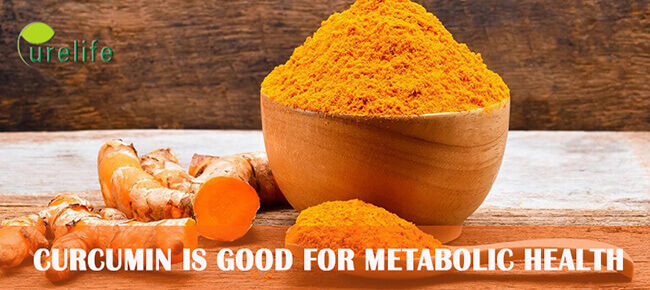Curcumin is good for metabolic health

Turmeric (curcumin) is known as a top anti-inflammatory plant. In recent years, with the study of turmeric (curcumin), its popularity among consumers has increased year by year, and it has been applied to a large number of products. Curcumin benefits include promoting cardiovascular health, brain health, joint and liver health etc, and also , curcumin is good for metabolic health .
Curcumin is good for metabolic health
Some studies have shown that curcumin has a positive effect on parameters related to metabolic function. For example, researchers at the federal Institute of technology in Alagoas, Brazil, conducted a meta-analysis and randomized controlled trials to assess the effect of turmeric extract on blood sugar regulation. The meta-analysis included 11 trials, while the randomized controlled trial subjects were adults over the age of 18, and lasted for four weeks. The main observations include changes in fasting blood sugar levels, changes in hemoglobin A1c (HbA1c), and insulin resistance.
The results of the meta-analysis showed that the levels of HbA1c and fasting blood sugar in the experimental group decreased significantly, but no significant changes were found in HOMA-IR. HOMA-IR is an indicator of insulin resistance. Interestingly, among those with some degree of blood sugar disorders, including those with diabetes, it is most effective to supplement curcumin, which suggests that curcumin is more effective in those with higher blood sugar levels. This study confirmed that turmeric extract can play an important role in diabetes treatment programs.
Curcumin enhances fatty acid metabolism
Researchers at Harbin Medical University tried to find out the mechanism of which curcumin reduces blood sugar levels. In previous animal studies, the researchers found that curcumin reduced levels of free fatty acids in the serum and increased fat oxidation in muscle tissue, leading to a significant drop in blood sugar levels and improved insulin resistance. The clinical study was conducted to determine whether these effects could be observed in diabetics.
Researchers recruited some overweight diabetics and divided them into two groups, one taking 300 mg of curcumin per day, and the other group taking a placebo for a period of three months. Finally, a total of 100 participants completed the experiment.
The results showed that curcumin could lead to a significant reduction in fasting blood sugar and insulin resistance, as well as a significant reduction in total free fatty acids and triglycerides in the serum. At the same time, the activity of enzymes also increases, and lipoprotein lipases can break down glycerides into free fatty acids. Therefore, an important mechanism of curcumin in the human body may be to reduce fasting blood sugar levels by promoting the oxidation and use of fatty acids.
Also , Curcumin is known for its antioxidant and anti-inflammatory effects, and these mechanisms may help slow metabolic syndrome. Curcumin can significantly affect the body’s endogenous inflammation and oxidation state, which creates a lot of metabolic protection.


